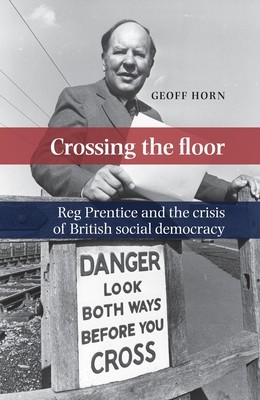
- We will send in 10–14 business days.
- Author: Geoff Horn
- Publisher: Manchester University Press
- ISBN-10: 0719088690
- ISBN-13: 9780719088698
- Format: 15.2 x 23.6 x 2 cm, hardcover
- Language: English
- SAVE -10% with code: EXTRA
Reviews
Description
Reg Prentice remains the most high-profile politician to cross the floor of the House of Commons in the post-war period. His defection reflected an important 'sea change' in British politics; the end of the post-war consensus and the beginnings of the Thatcher era.
This book examines the key events surrounding Prentice's transition from a front-line Labour politician to a Conservative minister in the first Thatcher government. It focuses on the shifting political climate in Britain during the 1970s, as the post-war settlement came under pressure from adverse economic conditions, militant trade unionism and an assertive New Left. Prentice's story provides an important case study on the crisis that afflicted social democracy, highlighting Labour's left-right divide and the possibility of a realignment of British politics.
This study will be invaluable to anyone interested in the turbulent and transitional nature of British politics during a watershed period.
EXTRA 10 % discount with code: EXTRA
The promotion ends in 9d.11:10:57
The discount code is valid when purchasing from 10 €. Discounts do not stack.
- Author: Geoff Horn
- Publisher: Manchester University Press
- ISBN-10: 0719088690
- ISBN-13: 9780719088698
- Format: 15.2 x 23.6 x 2 cm, hardcover
- Language: English English
Reg Prentice remains the most high-profile politician to cross the floor of the House of Commons in the post-war period. His defection reflected an important 'sea change' in British politics; the end of the post-war consensus and the beginnings of the Thatcher era.
This book examines the key events surrounding Prentice's transition from a front-line Labour politician to a Conservative minister in the first Thatcher government. It focuses on the shifting political climate in Britain during the 1970s, as the post-war settlement came under pressure from adverse economic conditions, militant trade unionism and an assertive New Left. Prentice's story provides an important case study on the crisis that afflicted social democracy, highlighting Labour's left-right divide and the possibility of a realignment of British politics.
This study will be invaluable to anyone interested in the turbulent and transitional nature of British politics during a watershed period.


Reviews